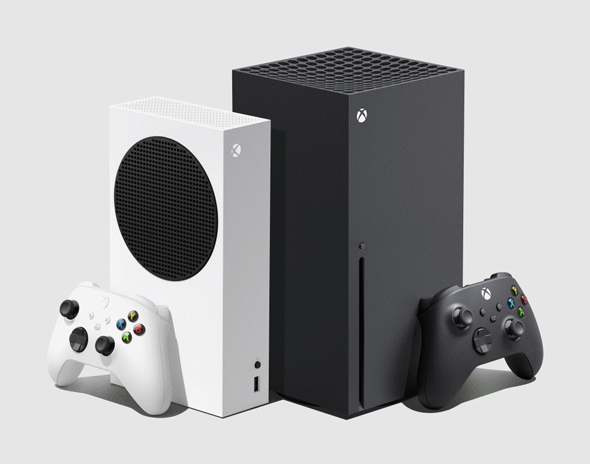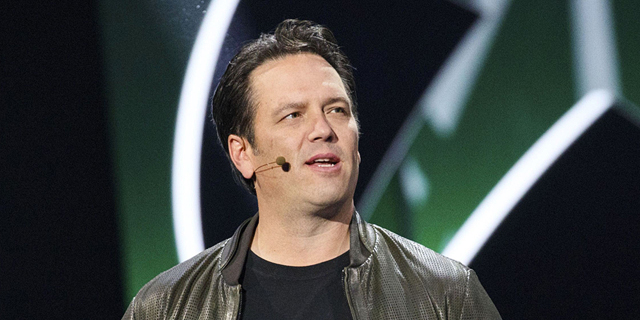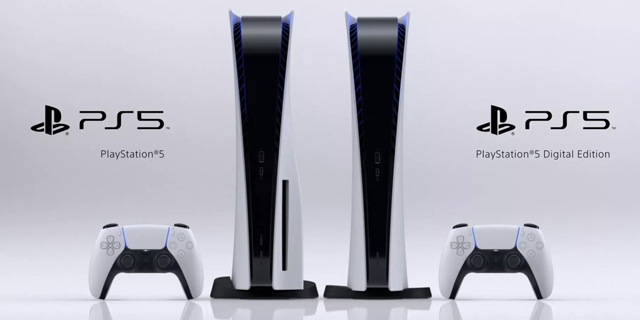This week marks one of the greatest business bouts of the decade. In one corner, there’s American monster Microsoft, which is valued at nearly $1.7 trillion. In the other corner is Japanese brand Sony that’s valued at $110 billion. In the middle lies one of the most intriguing and growing markets there is, namely the world of gaming. On Nov. 10, Microsoft released two new versions of its Xbox console. On Thursday, Sony released its Playstation 5, and the previous generation of gaming consoles, which were unveiled seven years ago, will become obsolete.
Sony won the last battle in a knock-out when it unveiled the Playstation 4. Between November 2013 until July of this year, Sony sold 112 million consoles, while Microsoft sold only 48 million versions of its Xbox One. And if things couldn’t get any worse for Microsoft, Nintendo sold 62 million consoles of its handheld gaming console, Switch, which was only released in March 2017.
No one knows whether history will repeat itself this time around. During the last seven years, gaming has gone mainstream, and the ongoing coronavirus (Covid-19) pandemic has merely sped up the trend. Even prior to the outbreak, many giant corporations were racing to develop the “Netflix” of the gaming world and help make it accessible to millions of more people.
In the previous round Xbox lost, there’s no question about it. However, it wasn’t a death blow to Microsoft. If the tables were turned, Sony would be on the boards. Gaming makes up a big chunk of Sony’s activities, bringing in some 26% of the revenues. For the multi-armed Microsoft, meanwhile, gaming makes up just 5% of its overall revenues, never mind the large discrepancy in their market value. These factors create a double status for Microsoft: it's the underdog in the gaming world, but still the favorite overall. Its gaming branch had to rethink its product, by being original and flexible like a startup, but with the deep financial backing of the mother company, Microsoft, the company with the deepest pockets on the planet. Here too Microsoft dwarfs Sony, with some $136 billion cash in pocket, compared to its competitor which only has $5.2 billion.
Two months ago Microsoft found a use for that money, something that could give it an advantage in battle when it purchased the U.S. gaming giant Bethesda Softworks LLC for $7.5 billion. This might be one of the greatest gaming companies in the world, which has developed popular gaming series such as Fallout, Doom, and Elder Scrolls.
Pouring money into a problem is one way to solve it, but Microsoft learned its lessons in its searing defeat and is throwing its weight behind a new solution: offering the Game Pass service, which allows users the freedom to peruse a virtual library of hundreds of games for a small fee of $10-$15 per month. During the marketing campaign, Microsoft offered a cheaper version for the new Xbox console, the Series S, which can also be used with a Game Pass subscription.
Content is the deciding factor
Before we understand how Microsoft plans to win over the next seven years, we must understand what caused its defeat seven years ago. Sony’s Playstation is one of the strongest brands in the gaming industry, but that alone isn’t a good enough reason. There are differences between the performance of Playstation and Xbox, and users tend to favor Microsoft overall, even though Playstation is simpler and has a more friendly user interface. The Xbox can also function as a home media center, and while many users have passed on that feature, it won’t be for long since smart televisions are set to become the new norm. So how is there such a clear winner in this competition between two similar, nearly identical products?
Exclusive games may have something to do with it. Most of the games that hit the market these days are released on multiple platforms, such as the Playstation, Xbox, PCs, and now even for the Nintendo Switch. Barely any games are released for use on only a specific console, and those are usually manufactured by subsidiaries of the console company, or by companies that have business ties to them. For example, Sony has been working closely since its Playstation 1 days with Naughty Dog Studios, which developed a series of short and cute games called Crash Bandicoot, which became one of the console’s flagship games. With the transition to richer 3D graphics and increasingly complex production, the studio decided to shift its emphasis to producing mainly cinematic, plot-driven action games like the Uncharted and The Last of Us series. Microsoft also had a few wins in that arena, mainly its action series Halo and Gears of War, but those games weren’t competitive enough to begin with, and interest dwindled over the past few years. In comparison, Sony has repeatedly gambled on exclusive games that became hits, enjoying both critical and commercial success. It continued churning out new hit games straight up to the release of its newest generation console.
Ahead of the Playstation 5 launch, Sony was entrenched in its strategy of launching more of the same thing that previously brought them more than 50% of profits in the console market. Meanwhile, Microsoft is looking at the problem from a different angle, and its gaming division is undergoing drastic changes. Now, with the launch of the new generation, this approach has converged into a clear and targeted strategy.
This can be reflected in the purchase of Bethesda. Microsoft has yet to officially announce whether the beloved company’s series will be exclusively available on its newest generation of consoles (and it’s entirely possible that they won’t be), but if for some reason it won’t be available, then it will be another blow to Sony’s image as “the company with all the best games.” All of a sudden, there’s a chance that big gaming franchises, which millions of people in the world play and follow, will not be released for Playstation 5 or will be released to it only later.
Sony is swaggering as if it was the winner. That’s dangerous, especially when your rival is twice as strong. It’s even more dangerous during an era when boundaries are being erased, exclusivity deals in many cases only lasts a year, and virtual gaming libraries can be accessed for a mere $10 a month.
Who will become the “Netflix” of the gaming world?
During the past few years, more and more people are on the lookout for the “Netflix” of the gaming world. If you think about Netflix today, it’s a streaming service that allows users to access a large virtual library with great variety in seconds. The gaming world, however, isn’t quite there yet. Last year, Google released a similar streaming service, Stadia, but it didn’t fly, mainly because it didn't offer a varied library and its weak connectivity didn’t allow for immediate streaming. If you recall Netflix’s early days, its roots as a service that allowed subscribers to rent DVDs for a monthly fee, you realize that the real revolution was the ability to provide access to a wide variety of content. The streaming revolution - which allowed users to access and stream content immediately - only happened later.
That’s where Microsoft’s Game Pass comes into the picture, offering 200 titles and weekly new additions. Its immediate significance is clear: pay less, get more games - namely more access to try new games without purchasing them first. A new game is an investment that costs up to $60 now, with talk of prices climbing to $70 over the coming period. Microsoft is now offering an annual subscription, for the price of two or three games, to access a nearly infinite number of games, certainly, more than a single player can play in a month or even a year. While it won’t have all the games, users will always find something to play.
Here’s where Microsoft's big gamble comes in: its Xbox Series S, the most affordable version of its newest console. Its Series X, which is sold for $500, offers the best graphic capabilities that modern software can provide. The Series S, meanwhile, costs $300 (NIS 1,349) and has a weaker processor that isn’t much stronger than the current generation of consoles. That may be a drawback, but it is a secondary consideration for the audience that Microsoft is trying to target with the Series S
For several years now casual games — short and relatively easy and simple games— are becoming more popular than hard-core or traditional games, like those played on gaming consoles or PCs. Microsoft examined the world of casual games and decided to release the Series S, once it learned an important lesson: people want to play games easily, quickly and comfortably. The Series S is perfect for the casual gamer, or people who aren’t even gamers at all. Those customers can pay a smaller fee while accessing a large virtual game library.
When it comes to the deal that Microsoft is offering, there is no competition to the Series S. The Nintendo Switch also costs $300, but not only does it not offer the Game Pass streaming option, Nintendo is notorious for not offering discounts on its major titles. Customers can also purchase a PC at the same price and connect to the PC version of Game Pass, but it won’t be able to play most games, and the performance on those that can be played will be lacking. When users buy a console, the purchase includes something like a manufacturer’s promise ensuring that they don’t have to worry about software performance for the next seven years. Games may not run as fast or be as graphically impressive, but they will be playable without issue all the way up to the next generation of consoles.
The timing of the new consoles’ release makes even the weaker Series S appeal to a more refined audience, by virtue of the fact that the rate of game graphics improvement has declined dramatically from the moment it became convincingly photo-realistic. All of the games which will look amazing on the Series X will still look pretty good on the Series S. The main difference between modern games to those from 2015 is in the small details, whether that be the sweat on a player’s forehead or how rugged a leaf’s texture is that falls from the sky. You can’t compare games from 1995 to those from 2000, or between games from 2000 to those from 2005.
Quality vs Quantity
So what should hardcore gamers do? Those who don’t want to give up on Sony’s exclusive games? Executive Vice President of Gaming at Microsoft and head of the Xbox brand Phil Spencer hinted at a solution in an interview to gaming website Kotaku: “The S can also be used as a “second console.” Do you want the expensive Playstation with Sony’s exclusive games? No problem. But if you’re already spending a lot of money on your precious hobby, why don’t you bring home Xbox’s cheaper console and enjoy all of the games it offers without buying a single one? If some of those games are Fallout or Doom, there’s a good chance that even Sony’s most devout fans will open the door to Microsoft’s clever little console.
Sony is broadcasting business as usual, and rushing to put out the fires that Game Pass lit. PlayStation CEO and head of Sony’s gaming division Jim Ryan doesn’t miss an opportunity to let people know that he doesn’t believe in service streaming platforms. In an interview in September he repeated how he doesn’t think such a plan is sustainable, saying “developing games costs millions of dollars, sometimes over $100 million. For other companies that are in a different place right now, perhaps that can work, but not for us,” he said. “What we offer to our customers is what defines our platform: excellent, new games.”



